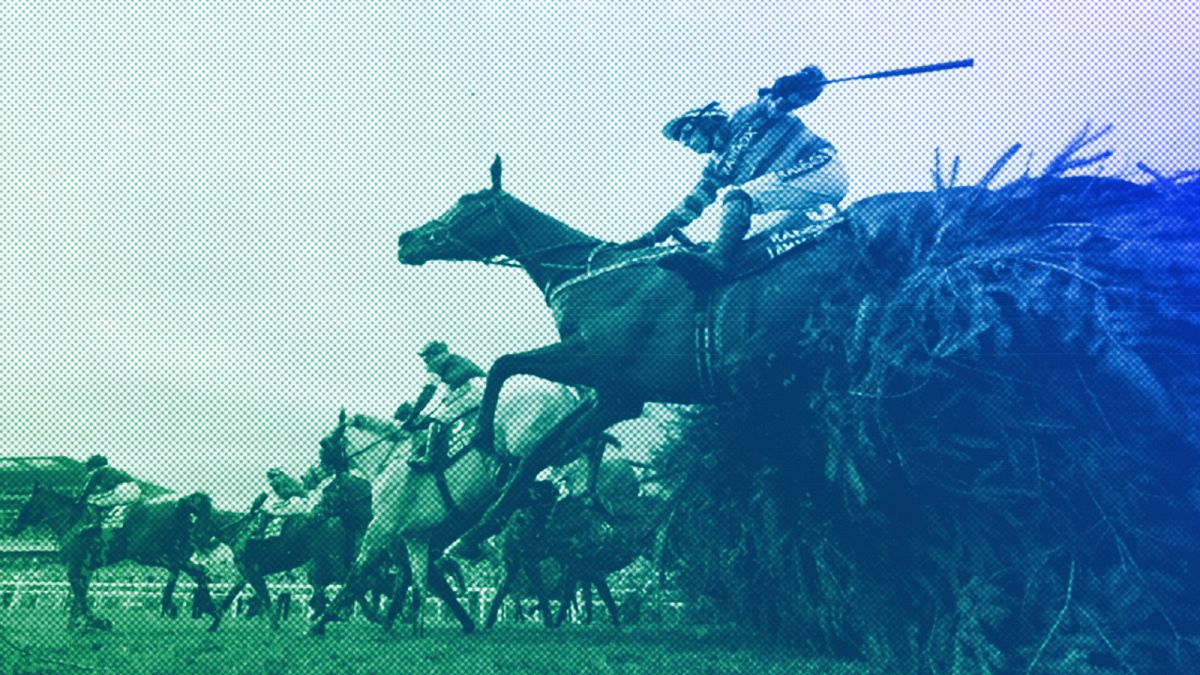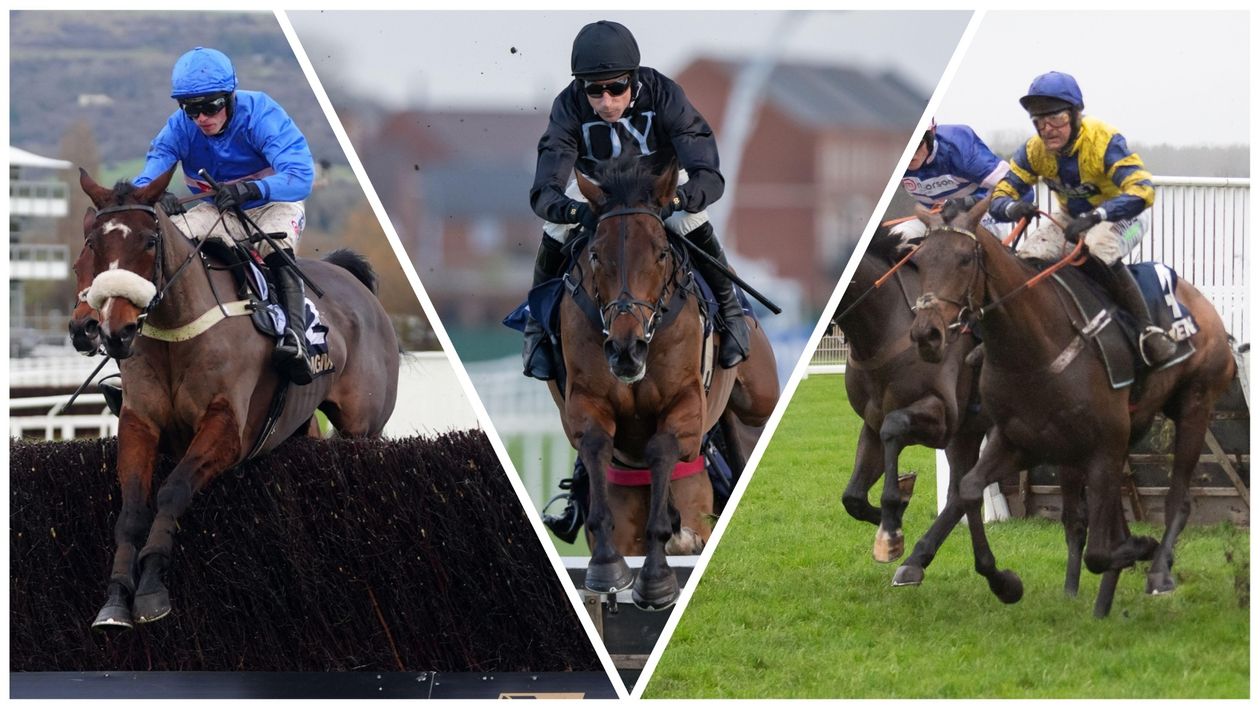Further horse deaths at the Grand National show cruel races must end

The opinions expressed in this article are those of the author and do not represent in any way the editorial position of Euronews.
Suffering is an almost inevitable outcome, and it is supported with each bet placed — all just for a fleeting flutter, Elisa Allen writes.
Each April, more than 150,000 people attend an event that celebrates horse deaths.
Of course, the promoters don’t frame the Grand National Festival this way, but let’s call it what it is: just another event where horses are exploited for profit.
Inevitably, this year was no different. Two horses suffered fatal — and completely avoidable — injuries.
Yet again, blood is on the hands of everyone involved in the event’s organisation or who attended the three-day meeting at Aintree, and yet again, we’re reminded that horse racing needs to end.
The Grand National meeting is one of the deadliest in the British racing calendar — it has claimed the lives of 65 horses since 2000.
From shattered knees and injuries sustained in collisions that result in euthanasia to broken necks and horses collapsing shortly after a race, Aintree is notorious for nauseating death scenes.
But no matter where it happens, all horse racing is cruel and shameful. Since 2007, over 2,500 horses have died in UK horse racing events and thousands more have been sent to slaughter, often so their flesh can be turned into food.
We’re partaking in death by greed
Horses are intelligent, sensitive individuals, and at these cruel events, they are literally raced to death out of greed.
Horses who survive are often left limping on damaged legs or bleeding from their noses due to lung damage. Meanwhile, punters revel in the cheap thrill of making a bet, jockeys hold trophies aloft, and trainers tally up their prize money.
Those who are injured to the point of no longer being able to race are considered no longer valuable and will be shot before the champagne corks have even been popped.
The event has long been under pressure to reform, owing to the ever-rising death toll, and this year was its first implementing new misleadingly named “safety measures”.
While attempts to make the racecourse less perilous are welcome, these changes clearly don’t go far enough — which was unfortunately proven by the deaths of horses Giovinco and Pikar, who were killed at this year’s event.
These measures also do nothing to mitigate many of the big issues with the industry, including that there is no retirement plan for horses, resulting in thousands of animals being sent to abattoirs every year.
Thrown away like used betting slips
In fact, many horses bred into the industry are discarded like used betting slips simply because they aren’t fast enough.
If they’re lucky, those the industry rejects will be surrendered to equine rescue charities, but others are left to languish in fields, shot in stables, or sold for slaughter in the UK or abroad.
It was only in 2022 that the slaughter of retired racing horses for human consumption became illegal in the UK, but the country remains the eighth-largest exporter of horse meat in Europe — profiting from the corpses of animals Brits have deigned unethical to eat themselves.
Horses discarded by the global racing industry are also shipped all around the world, enduring horrific journeys on live-export ships, only to be killed upon arrival.
In 2019, PETA released shocking footage that revealed the cruel slaughter of Thoroughbred horses from the racing industry at the largest horse abattoir in South Korea.
Horses were struck repeatedly in the face as they were herded into a kill box, where they were hit on the head with a hammer and killed in front of other — clearly distressed — horses.
Horses love to run — but not for our cheap thrills
Like all animals, horses are individuals who experience emotions and feel pain, whether it’s a whip striking their flank, a bone breaking, or a bullet hurtling through their brain.
Suffering is an almost inevitable outcome, and it is supported with each bet placed — all just for a fleeting flutter.
Horses love to run in the wild, but forcing them to gallop at breakneck speeds while carrying a human who is repeatedly beating them is entirely different.
Horses can’t consent to being used for racing, and they should never be forced to partake in these events.
Nothing can bring Giovinco and Pikar back from the dead, but we can all help ensure that horse racing will be relegated to the history books, where it belongs, simply by never betting on or attending any horse race event.
Those looking to gamble can bet on one of the many sports involving only consenting human athletes, not mistreated animals.
Elisa Allen is Vice President of Programmes at People for the Ethical Treatment of Animals (PETA).
At Euronews, we believe all views matter. Contact us at view@euronews.com to send pitches or submissions and be part of the conversation.
Related
Camilla becomes royal patron of British Racing School
The Queen has become royal patron of the British Racing School, which trains the next generation of the horse racing industry.Camilla has a keen interest in the
Best horse racing betting sites in the UK (2025)
WHAT are the best horse racing betting sites, and which ones provide the best value?This is the question that every horse racing punter asks when looking for th
Musselburgh Racecourse named third-best racing venue in UK
The ranking was awarded by OLBG and OLBG Racing, which scored the venue 6.47 out of 10. This assessment was based on several factors, including ticket p
The best of the British team
Will the British team enjoy more success than of late at next week's Cheltenham Festival? Simon Holt looks at their main hopes.WHEN one peruses the entries at n













